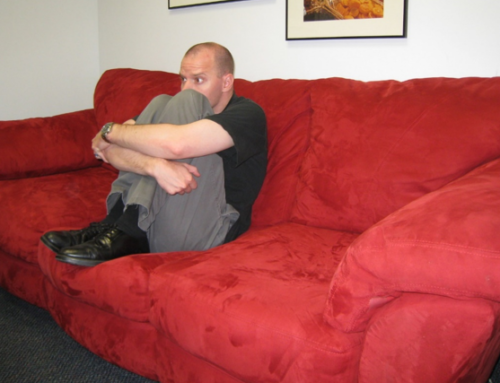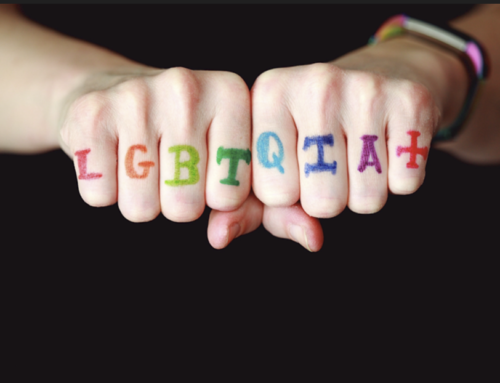Superheroes, Take Off Your Masks, Embrace Authenticity, and Take Care of Yourself
Christina Gallman Kemp, Psy.D.
Before we are able to express our pain and heal from it, we must acknowledge the root cause. Long before police brutality made it onto the news and cell phone videos of racist incidents went viral, I was tired, fatigued down to my core. When well meaning colleagues would ask how I was doing or if there was anything they could do following the murder of George Floyd, I did not know how to answer those questions. Honestly, I was even a bit vexed by them, since these issues were nothing new. In conversations I’ve had with colleagues since then I voiced the need for a recognition that things have never been okay and a commitment to taking action and engaging in ongoing learning.
Fortunately, I come from a family that discussed race and inequality with me early on. Back then I did not have a word to describe being taught how to survive and thrive in a white world. Twenty years later I would learn the term, “code switching” which I discuss below. While those talks with my parents prepared me for many things, they also led to a heaviness with which every African American can identify. This heaviness results from fatigue created by the mental and emotional exhaustion of racism. I was told, you will have to work harder and do better than the white student or colleague sitting next to you. Everyday, regardless of your educational achievements, socioeconomic status and accomplishments there seems to always be something else to prove to someone. Re-reading an email to check your tone before hitting send. Replaying in your mind what you said or did not say during a work meeting and then analyzing the reactions of your boss or colleagues. Wondering why even when your email signature states that you are a doctor, you’re still referred to by your first name. For some who have never experienced racism, this may sound like paranoia or anxiety. However, unlike paranoia, it is based on realistic circumstances and is 100 percent justified. This fatigue originates from “repeated variations of stress caused by centuries of racism [leading to] extreme exhaustion, causing physical, mental and spiritual maladies that are passed down [through generations]” (Winters, 2021).
Code switching is “a strategy for black people to successfully navigate interracial interactions…[involving] adjusting one’s style of speech, appearance, behavior and expression in ways that will optimize the comfort of others in exchange for fair treatment, quality service and employment opportunities” (McCluney et al., 2019). This significantly impacts psychological and physical well being, economic and career advancement and even housing opportunities. When examining black fatigue, we must accept that white supremacy still echoes in the background as the unquestioned standard of behavior in most institutions. The system of structuring opportunity, assigning value based on race, and unfairly disadvantaging some groups while advantaging others is still alive. This results in unspoken pressure to downplay your blackness, assimilate to increase your likeability as well as monitor language, behavior, hairstyles and dress to avoid mirroring negative stereotypes and make others more comfortable. Organizations should create environments where code-switching is no longer necessary for success and inclusion and differences are genuinely celebrated and encouraged.
After identifying the sources of your stress, acknowledge how it manifests and impacts your life. One example is “Imposter oSyndrome, a persistent feeling that we don’t really deserve our success or that we’re just ‘faking it’ ” (Gattuso, 2018) This likely originates from marginalized groups being judged negatively for their strengths. People of color (POC) are often perceived as anomalies when they’re academically successful or judged as less competent than less qualified whites. This discrimination starts in elementary school and continues to the job interview, professional meeting and board room. Consistently having other people doubt your abilities, worth, and authenticity impacts your confidence and mental health. Gattuso highlights that while people from dominant groups may have also faced obstacles and self-doubt, they don’t have their abilities scrutinized the way women and other minorities do. They can move through these environments more fluently and less hampered since these systems were built for them and by them with their interests in mind (Gattuso, 2018).
Gattuso suggests three ways to validate this pain and gain support and respite through connecting with others who understand it. First, remember YOU deserve to be here. You fought through the everyday common obstacles of getting ahead with the tenacity, grit, competence and resilience needed when barriers and glass ceilings persist. Most importantly, recognize that your pain can be your biggest asset. You have insight and perspectives that others without your experiences don’t possess. This is your secret SUPERPOWER. Secondly, she recommends teaming up with a workplace peer or a mentor because there is a tremendous need to have allies for mutual support and encouragement. If you have a fellow POC or other minority in your workplace who “gets it”, planning to support each other’s ideas in important meetings and projects along with providing each other with genuine feedback can be game changing. If you’re the only POC or minority, finding allies in other parts of the organization or outside of your workplace who can “reflect a more realistic self-image back to you when everyone else may be giving you a distorted one” is crucial to your success and wellbeing. Lastly, Gattuso states this is not a you-problem, it is a we-problem, a reflection of the world we all live in. We have a shared responsibility to do something about it. Lifting up others who share a similar experience and remembering you are good enough and deserve everything you have worked for is the best way to enter into the healing stage.
Self-care for marginalized groups includes aspects more closely linked to the recurrent traumas experienced by people in these groups. Limit intake of social media and the news. Give yourself permission to get help. Tell friends and family what you need, develop healthy boundaries and the ability to say no. Access therapy when needed and challenge messages and traditions that stigmatize it. Healing also means not forgetting that you are the person you are supposed to be, in the body you were designed to be in, with the gifts and talents no one else can express the way you can. Take off the superhero mask, and work on being authentically, unapologetically you, remembering your great power and worth. Your differences are your strengths. Your struggles empower you to keep going and find others to lift up along the way.
References
Winters, M. (2021). Black fatigue: How racism erodes the mind, body, and spirit. https://www.infoq.com/presentations/black-fatigue/
Mc Cluney, C.L., Robotham, K., Lee, S., Smith, R., & Durkee, M. (2019). The costs of code-switching. Harvard Business Review. https://hbr.org/2019/11/the-costs-of-codeswitching
Gattuso, R. (April 4, 2018). How marginalized people can overcome imposter syndrome. https://talkspace.com/blog/marginalized-people-overcome-imposter-syndrome






